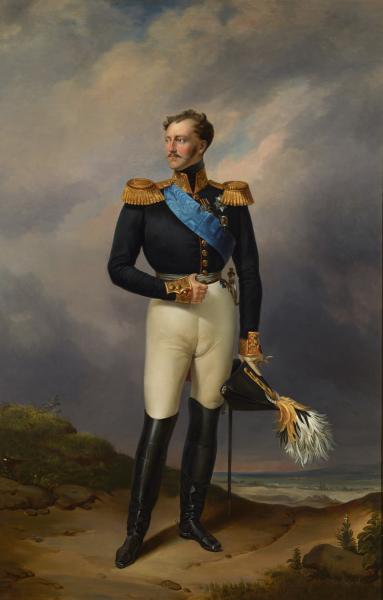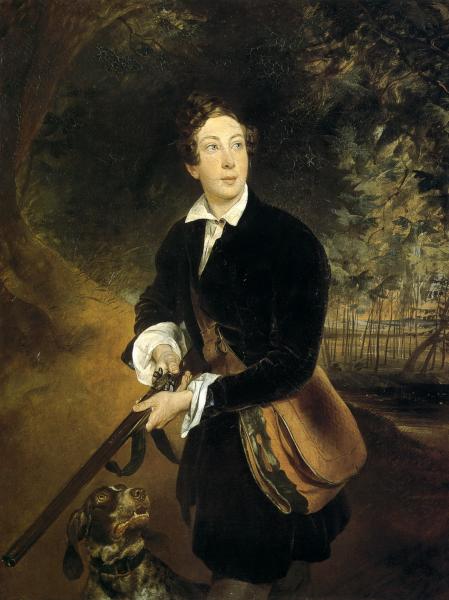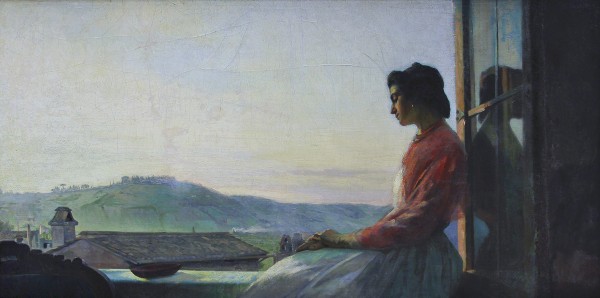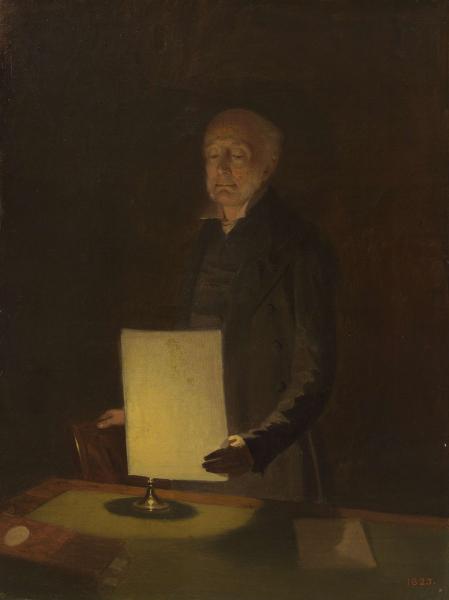The artist is Gudovsky

Nicholas I (1796-1855)-the third son of Emperor Paul I and Empress Maria Fedorovna, nee Princess Württemberg. Entered the throne in 1825. The board of Nicholas I was characterized by the centralization of state power and the regulation of all areas of activity. In 1826, the third branch of its own e was created. And. AT. Chancellery, designed to monitor the political well -being of subjects, and in 1827 – a censorship charter was published, called contemporaries “cast -iron”.
The basis of domestic policy was the principle of “autocracy, Orthodoxy, nationality”. The inviolability of the autocracy was the basis of foreign policy. The Polish uprising (1830-1831) and revolutionary unrest in Europe of the early 1830s contributed to the revival of the Holy Union of Russia, Austria and Prussia. In 1833, an agreement on mutual support in the event of a political crisis was reached between these countries. The role of the patron saint of Christian peoples under the rule of Muslims, adopted by the emperor, determined the eastern direction of foreign policy. Russian-Turkish war (1828-1829) contributed to the acquisition of the independence of Greece (1830). The last years of the reign of Nicholas I were overshadowed by military failures in the Crimean War (1853-1856). The identity and activity of the emperor caused conflicting assessments of contemporaries – from enthusiastic veneration (“knight of autocracy”) to categorical rejection (“gendarme of Europe”).
Natalia Solomatina. Exhibition catalog in Malaga "The Romanov dynasty". 2017. With. 301.
It is depicted in a common generation uniform with the orders of St. Andrew the First -Called (tape and star), St. Vladimir 1st degree (star at the belt); Big Vladimir Cross (on a ribbon under the uniform). In the block on the chest: Order of St. George 4th degree, medal "For the Russo-Turkish war 1828-1829", sign of the Order of the Dutch lion, distinction "Behind (?) years of immense service".
Copy from the portrait f. Kruger written in Berlin in 1835 and engraved b. Taumram in Amsterdam in 1843.


